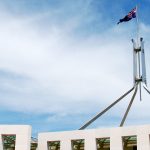TGCA CEO, Akos Balogh talks to Neil Foster (Associate Professor of Law at the University of Newcastle), about the Morrison Government’s proposed Religious Discrimination Bill
AB: What has happened recently at the Federal government level in terms of Religious Freedom legislation?
Going into the last election, the Morrison Government committed to implementing most of the recommendations of the Ruddock Review on Religious Freedom. In particular, they promised that they would move quickly on a “Religious Discrimination Bill”, and refer issues around the religious exemptions applying in other discrimination legislation (especially, but not solely, related to religious schools) to the Australian Law Reform Commission (ALRC).
They have now started to keep their promise by releasing, on August 29, an Exposure Draft Religious Discrimination Bill 2019 (“RD Bill”), along with two other Bills making related and associated amendments. Interestingly, at the time of release, they also announced a change to the ALRC inquiry. To quote the press release:
The Attorney-General has now amended the terms of reference narrowing the focus of the inquiry to confine the inquiry to issues not resolved by the Government’s Religious Discrimination Bill, and to confine the ALRC’s recommendations to legislation other than the Religious Discrimination Bill.
The reporting date for the ALRC has now been pushed back to December 2020. This will allow passage of the RD Bill without confusion about possible changes to be recommended by the ALRC, at least until the ALRC has a change to gauge the impact of the new law.
In these comments, I will assume at various points that readers have seen my earlier blog post on the broad outlines of the Bill and some of its key features.
AB: What do you see as the strengths of the bill?
The Bill will make it unlawful to discriminate against others on the basis of their religious belief or activity. It allows religious bodies, however, to continue to operate in accordance with their beliefs. It also tries to provide some general protection to “statements of belief” that might be attacked as discrimination.
The Bill will make it unlawful to discriminate against others on the basis of their religious belief or activity. It allows religious bodies to continue to operate in accordance with their beliefs.
This is in general a good step forward; it plugs a “gap” in the Commonwealth legislation dealing with discrimination, which until now has not covered this area. As well as a gap in the Commonwealth law on the area, currently NSW and SA residents also have had little recourse where they have been subjected to detrimental treatment on the basis of their religious beliefs.
My judgment is that this is generally a helpful development which will support the preaching of the gospel, and Christians living godly lives. In that sense it can be seen as part of an answer to prayers that have been prayed in accordance with 1 Timothy 2:1-4.
AB: What do you see as the weaknesses?
Like all legislation, there are a number of details that need to be clarified. I hope to offer a more detailed critique in due course, but some issues that I have noticed are:
- The definition of “religious belief or activity” in cl 5(1) refers to “engaging in lawful religious activity”. I am somewhat concerned that this is too broad. On its face it means that a State or Territory government, or even a local Council, could pass a law banning certain activities which might be regarded as core religious behaviour. While of course I support the view that certain types of “religiously motivated” acts should not be protected (for example, under-age marriage), simply using the broad category of “unlawful” will potentially undermine the protection of religious freedom under Federal law. I think more attention needs to be paid to precisely what forms of “unlawful” activity should not be regarded as protected by the law. It may be more honest to remove the qualification “unlawful” altogether, to openly acknowledge that some religiously inspired acts are not protected, and work on drawing up guidelines for these. To some extent this work has been done in relation to “religious speech” under cl 27(2) already, excluding from protection the advocacy of the commission of a “serious offence” involving harm. A similar provision may be needed defining the sort of “unlawful” activity that would not be protected.
Simply using the broad category of ‘unlawful’ will potentially undermine the protection of religious freedom under Federal law.
- I think more work needs to be done on the “Israel Folau” clause, cl 8(3). I have commented already on my blog that this provision, which at first glance seems designed to provide protection for the free speech of employees outside the workplace, may have unintended consequences. Restricting its operation to large employers (with an annual turnover of $50 million) may inadvertently send the message that this type of speech-restriction is acceptable for smaller companies. Using “financial” hardship as a criterion to excuse the behaviour seems inappropriate. And the exemption to the provision applying to speech that “vilifies” is not defined very clearly. I explore the issues here in more detail below.
- Protection for the religious freedom of religious bodies in cl 10 is a good idea, but I think more thought needs to be given to the exclusion of these protections from bodies that engage in “commercial activities”. Religious hospitals, for example, operate commercially but are designed to implement religious perspectives on the care of the ill and vulnerable. Why should they not also be able to operate in accordance with a religious ethos, and for example require that staff at least agree not to undermine that ethos in health-care decisions?
- There is an exemption to rules prohibiting religious discrimination in employment where making decisions related to religion is an “inherent requirement”, in cl 31(2). As others have commented, it is not common in discrimination law to see an exemption which assumes that a non-religious organisation may have an “inherent requirement” relating to religious belief or activity. It will be important to define more closely what this means. One danger is that this becomes a back-door way of authorising religious discrimination, by a secular company specifying an “inherent requirement” that, for example, staff never talk about religious topics. The exemption can operate sensibly if restricted to requirements that relate to the “core business” of the enterprise, rather than being “tacked on” by means of a “code of conduct”. It would be consistent with religious freedom, however, to allow religious organisations to operate in accordance with their religious beliefs.
- Clause 41 of the Bill (designed to deal with problems created when Archbishop Porteous was accused of behaving unlawfully by circulating Catholic schools with material spelling out the Catholic view on marriage) does clearly over-ride the specific terms of s 17(1) of the Tasmanian Anti-Discrimination Act 1998, which penalises causing “offence”. That clause also prevents a “statement of belief” from amounting to “discrimination” for the purposes of all Commonwealth and State discrimination laws. However, there is a comment in the Explanatory Notes to the RD Bill, para [418], which says that while a statement of belief cannot amount to “discrimination”, the clause “does not apply to harassment (including sexual harassment), vilification or incitement under an anti-discrimination law”. So it is still possible for a statement of religious doctrine (on, say, homosexual behaviour being contrary to God’s will) to be the subject of a claim for “sexual orientation vilification” under other State laws. This is an improvement on the previous situation (as such vilification is at least defined to be worse than merely causing “offence”) but it does leave open possible actions. In particular it should be noted that s 19 of the Tasmanian law is a “vilification” provision making it unlawful to “incite hatred towards, serious contempt for, or severe ridicule of” say, homosexual persons, and unlike most (I think pretty well all) other Australian laws of this nature, the defence provision in s 55 of the Tasmanian Act does not contain a defence for “religious purposes”.
- There is an added complication that even the over-riding of the Tas law s 17 does not apply if the statement of belief, under cl 41(2), is “vilifying”. But we need to nail down what this word means! The trouble is that it is in a list of verbs accompanied by “incite hatred or violence” and so cannot be restricted to those things (otherwise the word would be redundant). The Bill needs to define the word at an appropriately serious level (ie well above mere “offence”) or else just drop the word and use the other concepts.
- The specific protections for health practitioners contained in cl 8(5) and (6) are a good idea in general, aiming to prevent those who govern the activities of such practitioners from imposing a “conduct rule” preventing them from conscientiously objecting to providing certain health services. But under s 8(5) if there is a State or Territory law which allows conscientious objection, that is to be applied. So it is not at all clear that this provision would assist someone in a jurisdiction with a too narrow (as opposed to “no”) law on the topic. Certainly, many would say that the Victorian law on abortion (which seems to require a formal “referral” of a patient seeking an abortion to someone who will carry it out), still leaves doctors who cannot, in conscience, assist in such an abortion morally complicit. And these provisions would not seem to help.
AB: How would Israel Folau’s situation have been any different were the above bill have been law when he posted his Instagram post? What are the implications for Christians who are employees?
The Bill attempts to deal with a situation similar to that of Mr Folau by locating the solution in the discussion of “indirect discrimination.” In general, it will be “indirect” discrimination under cl 8 to impose a condition or requirement on an employee which they, as a person of faith, will find much harder to comply with, than someone of a different or no faith.
A “code of practice” that requires (either explicitly or by implication) that a person cannot speak publicly and politely (even outside working hours or at lunch time in casual conversation) about aspects of their faith which others will find upsetting or offensive, will arguably be indirectly discriminatory.
The question in all cases of indirect discrimination is whether the condition or requirement is “reasonable”. Various considerations are set out in cl 8(2) which must be weighed up in coming to a view on this issue. There is then a special rule in cl 8(2)(d) dealing with “employer conduct rules”, which requires consideration to be given to whether such a rule would “limit the ability of an employee of the employer to have or engage in the employee’s religious belief or activity”.
If such a rule, for example, said that no employee of a company should ever mention “hell” or “sin” while talking to other employees (even at lunch hours or if themselves asked the question), this may seriously “limit” the ability of an evangelical employee to engage in a core part of their faith, which is speaking about eternal judgment in order to invite people to follow Jesus and be saved.
The Explanatory Notes to the Bill (in the context of another clause) note that: “evangelising may constitute a religious activity where adherents of that religious group are required, or encouraged, to evangelise” (para [69]).
Clause 8(3) (the so-called “Folau clause”) is then designed to operate in this way: it sets up a rule that a certain type of “employer conduct rule” is automatically deemed to be “not reasonable” unless a particular condition is satisfied. This rule will only apply to large companies (turnover of more than $50 million per year).
The “conduct rule” must be one that restricts an employee from making a statement of belief outside working hours. The condition under which it is “reasonable”, despite the prima facie unreasonableness of the rule, is where compliance by the employee is “necessary to avoid unjustifiable financial hardship to the employer.”
it is not obvious whether this would have availed Mr Folau … It is not settled yet whether a statement of the Bible’s opposition to certain sexual behaviour can ‘vilify’ persons who define their identity by supporting that sexual behaviour.
It has to be said that it is not obvious whether this would have availed Mr Folau were it in force at the time he made his remarks about various types of sinners facing God’s judgment. First, the “financial hardship” clause might have been invoked by Rugby Australia if (as has been suggested) they faced the prospect of losing a large sponsorship deal with a major sponsor who objected to the remarks.
Second, as noted previously, cl 8(4) disapplies the rule in cl 8(3) where the speech in question would “vilify” a group of persons. It is not settled yet whether a statement of the Bible’s opposition to certain sexual behaviour can “vilify” persons who define their identity by supporting that sexual behaviour. If that is not the intention, the word ought either to be clearly defined or removed.
The implications for employees in general (for those who do not work for large private employers), however, is that they should still be able to invoke the general prohibition on indirect discrimination under cl 8(1). Indeed, the government’s Explanatory Notes make this clear at para [130]:
130. If an employer conduct rule is not prima facie unreasonable by virtue of subclause 8(3), a court would still need to consider whether the rule was reasonable in accordance with subclause 8(2), including paragraph 8(2)(d).
The intention seems clear, that cl 8(3) imposes a more demanding test to be met by large employers, but it does prevent employees in other situations from seeking a remedy where an unreasonable condition has been imposed on them, which disadvantages them due to their religion.
In light of this, it would seem to be wise to make this very clear by noting this in the legislation itself- for example, by words at the beginning of cl 8(3) to the effect of “Without affecting the general provisions of clauses (1) and (2)…”
An example of a case where an employee was successful in this sort of claim, under UK law, is to be found in Mbuyi v Newpark Childcare (Shepherds Bush) Ltd (Case No 3300656/2014; ET, 21 May 2015), where a Christian child-care worker was dismissed after a colleague had initiated a conversation on the Bible’s view of homosexuality, and became offended when Biblical answers were given.
The tribunal found that Ms Mbuyi had been indirectly discriminated against under the relevant UK law, s 19 of the Equality Act 2010 (UK), because a “provision, criterion and/or practice” (PCP) had been applied to her, that employees should not express any adverse views on homosexuality or describe it as a “sin”. (See para [101.1]) This PCP put “evangelical Christians” at a disadvantage in comparison to people in the community generally. (For a more detailed discussion of the case, see this blog post.)
AB: How would Christians schools fare under the proposed protection, in particular when it came to selecting teachers?
Clause 10 of the Bill provides generally that “religious bodies” (defined in cl 10(2)(a) to include faith-based schools) do not unlawfully discriminate when they engage “in good faith, in conduct that may reasonably be regarded as being in accordance with the doctrines, tenets, beliefs or teachings of the religion in relation to which the religious body is conducted”.
In general, this would seem to support a Christian school adopting a policy that it would only employ teachers who were in agreement with the doctrines under which the school was being run.
There has been some doubt expressed as to whether a school which was not completely consistent with such a policy could rely on the clause- a school, for example, which would like to “prefer” those who are whole-hearted supporters of their faith, but is willing to employ some, perhaps specialist, teachers to meet a need where none can be found who agree with the doctrines.
It would seem to me that a “preference” policy would still be justifiable as an expression of “doctrines, tenets or beliefs”, but it may be better to clarify this before the Bill becomes law.
AB: What are the implications of the bill for students at religious institutions?
For students at a religious educational institution, it seems clear that the institution can, if it so chooses, require attendance at “chapel” or other religious meetings, and also require that students’ dress and behaviour while at the school are consistent with the school’s religious and (religiously inspired) moral values.
For a Muslim school, if it is a school rule inspired by Muslim traditions that Muslim girls wear head-scarves, then the school would be free to implement such a rule, even if they did not impose such a condition on non-Muslim students.
(If it were claimed that this was a case of “sex discrimination” if boys were not required to wear scarves, then at the moment s 37(1)(d) of the Sex Discrimination Act 1984 (Cth) would allow the school as a religious body to act in accordance with its beliefs. Of course, as noted above, the exemptions and “balancing clauses” in other discrimination laws relating to religion are under review by the ALRC, so that may change in the future, depending on the outcome of that review.)
AB: What implications are there for churches and religious charities?
Implications for churches and charities relate both to their obligations, and the protections they will enjoy that they do not have at the moment.
In terms of obligations, a church will usually be a “religious body” under cl 10(2)(c), and be able to operate generally in accordance with their doctrines and beliefs, despite the prohibitions against religious discrimination under the rest of the Bill.
Clause 10(3) says that the protections of s 10 apply “despite anything else in this Act”. So a church will be able to employ a pastor who agrees with its doctrines (despite cl 8); if it chooses not to lease its school hall to a Buddhist group, it may so choose (despite cl 19 concerning access to premises); if it chooses to only offer marriage or baptism services to persons who agree with its doctrines, it can do so (despite cl 20 concerning provision of “services”).
Can a church complain if it is discriminated against? Suppose a small evangelical church which is incorporated as an association, seeking to hire a hall for its regular meetings, and told that it cannot do so, either because the landlord will not hire to churches, or because the landlord fears that the church will teach something from the Bible that he or she regards as inappropriate?
If the hall is generally open to public hire, then under cl 19 it is unlawful for a person, on the grounds of religious belief or activity, to refuse another person access to premises, or to discriminate “in the terms and conditions on which the person is prepared to allow the other person access to, or the use of, such premises” (cl 19(b)).
As an incorporated association, the church would be a “person”—this is made clear by note about the meaning of “person” in cl 5(1), referring to the fact that the usual meaning of this term under Commonwealth law includes a “body corporate”. Indeed, this precise situation is dealt with in the Explanatory Notes at para [78]:
78. For example, a religious body corporate which was refused a facility booking in order to undertake a religious activity, such as for communal prayer, may be able to make a complaint under this Act that the refusal constituted discrimination on the basis of the body’s religious belief or activity.
Establishing the religious nature of the association would usually be straightforward if this is spelled out in its formal rules. Of course, if the “church” were to engage in teaching which promotes violence or other serious harm, then the exception in cl 27 would apply.
But if the teaching of the church were simply presenting the Bible’s views on sexual behaviour, for example, then it would seem to be discriminatory to order them not to teach such things when a religious or secular group who would not teach such would be allowed access to the premises.
On issues relating to religious charities, the above comments about churches will mostly apply to them as well (they are defined to be a “religious body” under cl 10(2)(b) so long as they do not engage “solely or primarily in commercial activities”.)
But it should also be noted that charities have their own specific provision, not in the main Bill but in an associated Bill, the Human Rights Legislation Amendment (Freedom of Religion) Bill 2019, where cl 4 of that Bill amends the Charities Act 2013 (Cth) to make it clear that it is not a “disqualifying purpose” under charity law to support a traditional, Bible-based view of marriage.
This is a helpful amendment given that there are already attempts to de-register a New Zealand charity on this ground.
Under cl 29, a religious charity which has been set up to benefit persons of a specific religion, may continue to do.
AB: Is there anything else Christians should be aware of about the bill?
As mentioned above, there are some aspects where the Bill could be improved. Limitation of the protections for “religious bodies” to exclude those engaged in the commercial sphere should be rethought.
Some clarification is needed over the “inherent requirements” exception as they apply to non-religious bodies. The extent of the protection for “statements of belief” under cl 41 should be made clearer.
As members of the Australian community, believers have a right to have their views known, and indeed in cases like this it may come closer to a ‘duty’!
Something not mentioned above is that the Bill establishes (in Part 6) a “Freedom of Religion Commissioner” in the Australian Human Rights Commission. Some have expressed concerns that this person may not always be someone with a serious concern for religious freedom.
While anything is possible, on balance I think it is a wise move, especially as there are already specialist commissioners dealing with, and advocating for, other areas designated as “prohibited grounds” of discrimination.
There is the potential for this person to be an advocate for religious freedom in a context where this human right has often been downplayed in contrast to others.
AB: How might Christians respond to the bill?
As mentioned previously, God’s people are urged to pray for our leaders, that their decisions will lead to laws that allow godly and quiet behaviour and the continued proclamation of the gospel. I think such prayers should continue.
It would also be wise for those who able to, to download the Bills and their Explanatory Notes from the Attorney-General’s website on the area, and make any comments by the deadline of 2 October. As members of the Australian community, believers have a right to have their views known, and indeed in cases like this it may come closer to a “duty”!



















